Falko Schilling, here. In addition to being the Advocacy Director at ACLU of Vermont I’m a current VPIREF trustee and former VPIRG staff member.
Throughout its history, VPIRG has been a bold leader in consumer protection issues, advocating for Vermonters to have a right to know what’s in the products they consume and watchdogging potentially toxic health and environmental impacts.
An exciting new chapter in that fight began in late 2011 when an opportunity appeared for Vermont to become the first state in the nation to require labels on genetically engineered foods.
VPIRG had previously led a successful precedent-setting campaign to label mercury light bulbs. We saw that as proof of concept that even a small state like Vermont could drive national labeling requirements, and we were optimistic that we could similarly change the national food production landscape by passing GMO labeling here in the Green Mountain State.
I was given the opportunity to take the reins as campaign manager for VPIRG’s GMO Labeling Campaign and quickly got to work organizing and advocating in the State House, not realizing that this would be the start of a five-year battle.
The momentum that built during the 2012 and 2013 legislative sessions was incredible. A series of in-depth hearings in the House Agricultural Committee were capped off by a powerful public hearing that saw the entire House chamber packed with GMO labeling supporters. This flood of compelling testimony helped move the bill out of committee, and eventually the House. While there wasn’t enough time to pass it through the Senate that year, the seed of an incredible coalition had been planted and we knew we were well on our way.
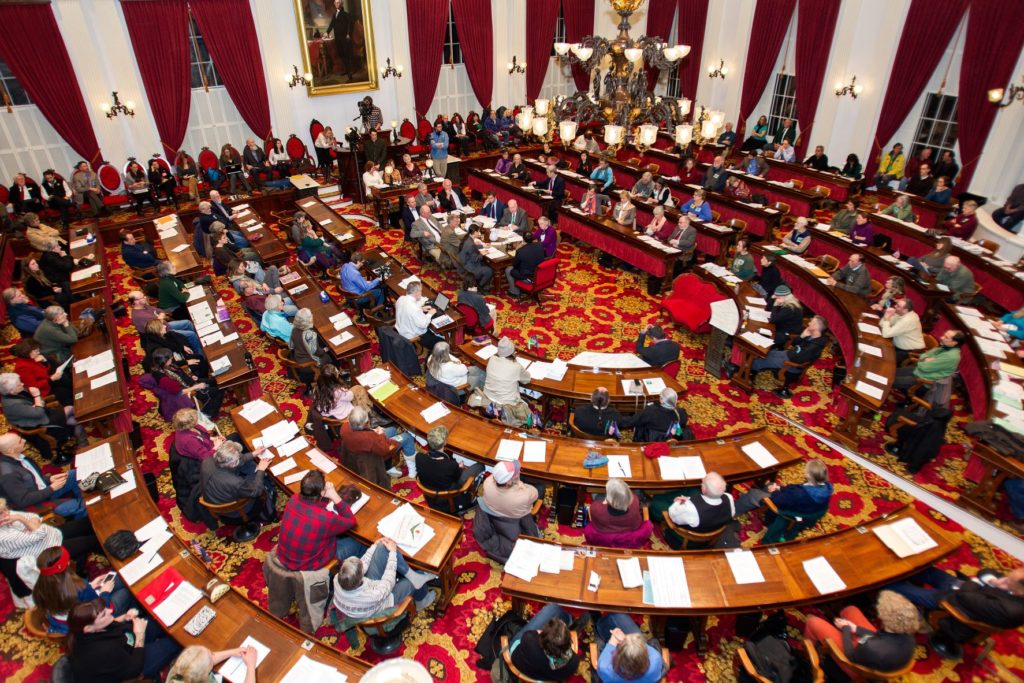
Here at VPIRG we’ve long believed that our incomparable summer canvass operation is a powerful tool for change.
In 2013, we made the critical decision to focus our summer canvass on the GMO labeling campaign, and for the first time ever our canvassers knocked on doors in every single city and town in Vermont (a feat we’ve proudly repeated many times since) to educate Vermonters about the issue and mobilize supporters to take action.
Ultimately our canvass team collected more than 30,000 petition signatures in support of GMO labeling from every corner of the state and delivered these signatures to state leaders. This unparalleled show of strength generated by the canvass was without doubt a pivotal moment in the campaign; there simply wouldn’t have been an appetite in the Senate for taking up this legislation without that incredible groundswell of public support.
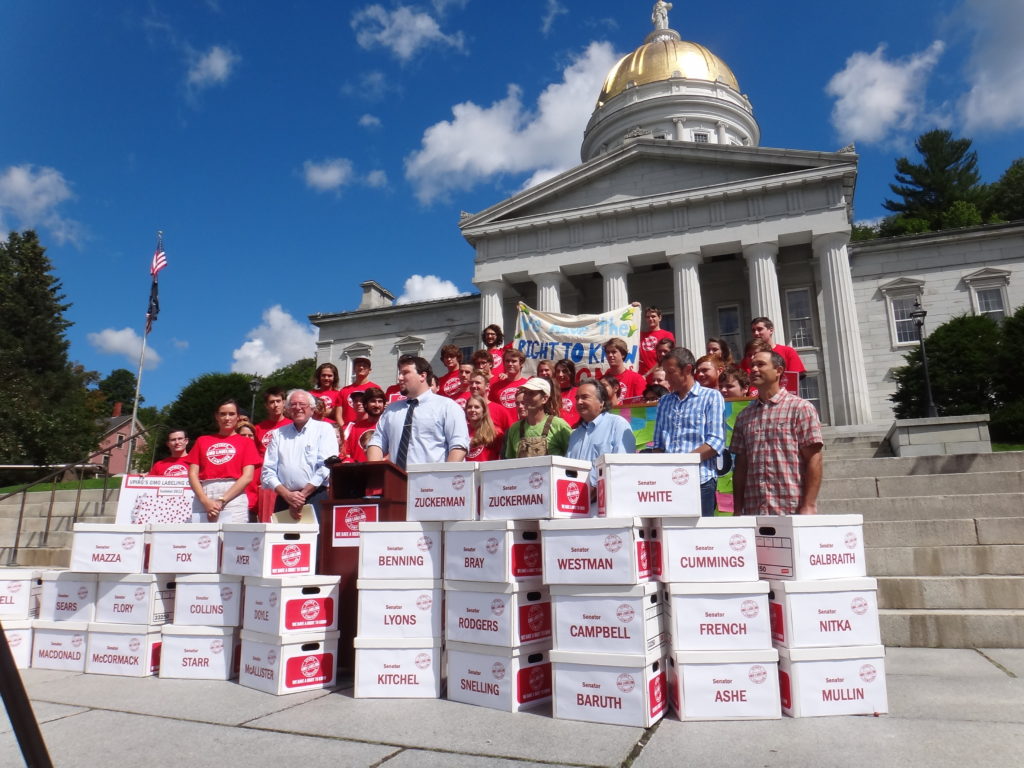
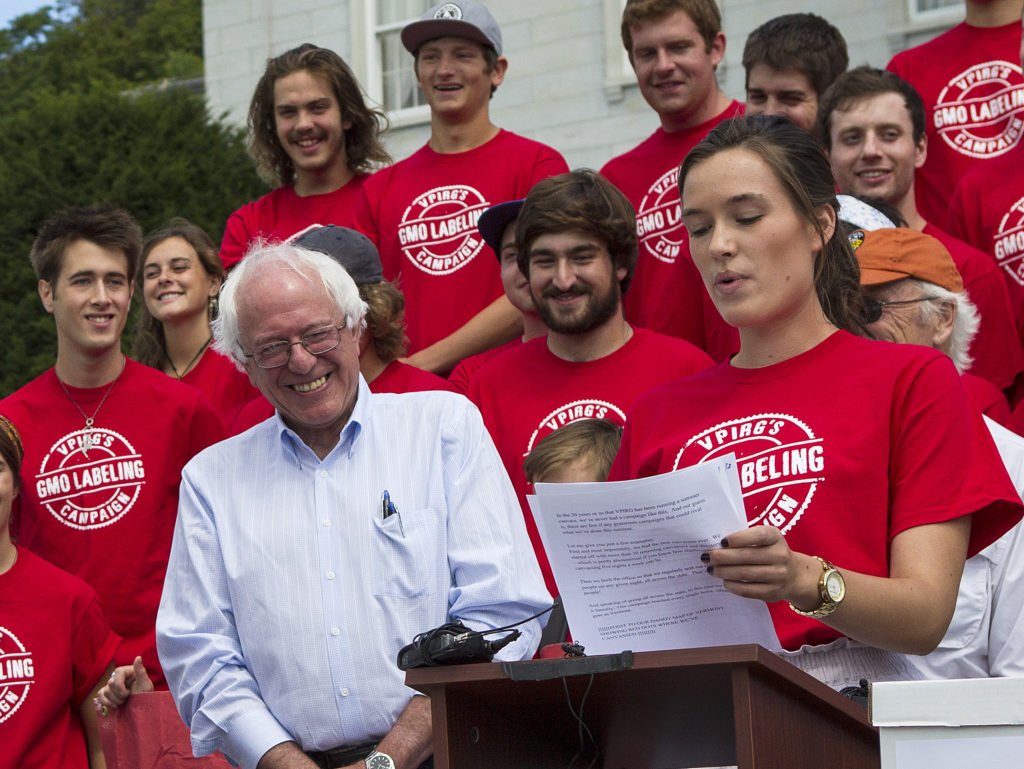
It wasn’t always smooth sailing, but with help from coalition partners like NOFA-VT, Cedar Circle Farm, and Rural Vermont, local businesses like Ben & Jerry’s, and the vocal support of tens of thousands of Vermonters, we were finally able to get the GMO labeling bill signed into law by Governor Shumlin on May 8th, 2014.
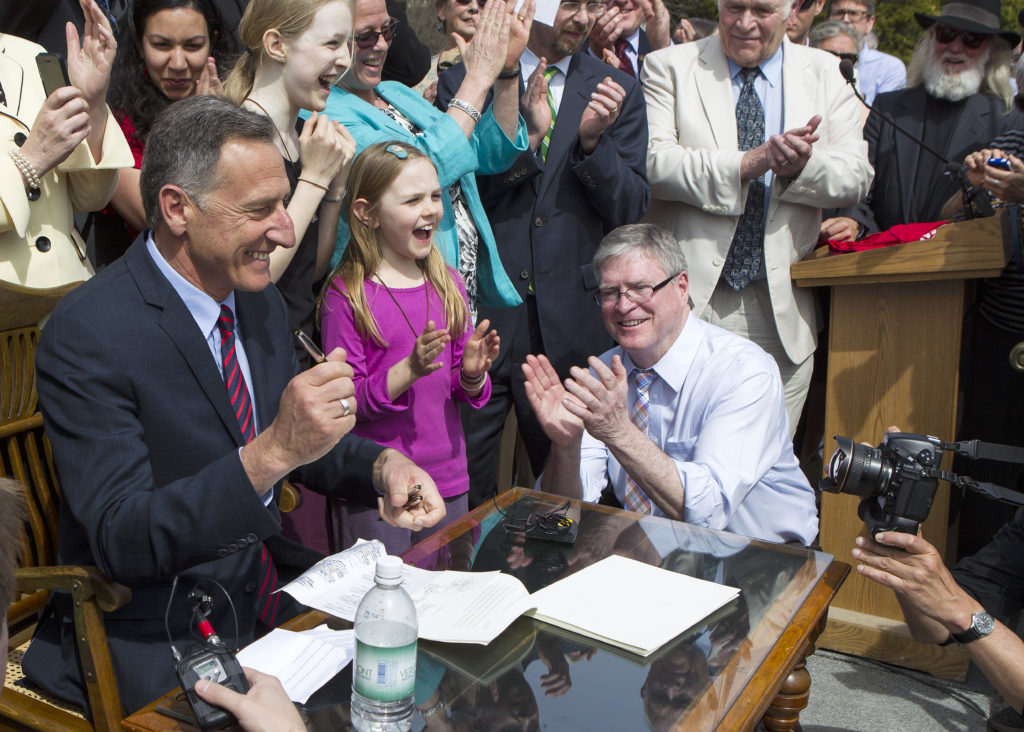
Our fight wasn’t over yet though. The bill signing started the clock on a two-year implementation period, during which time the VPIRG team worked with the Attorney General’s office as they developed rules for the program and successfully defended against a lawsuit bought by the Grocery Manufacturers Association, a victory that meant that manufacturers such as Kraft, General Mills, Pepsi and Campbell’s decided to label genetically engineered products around the country.
Finally, on July 1st, 2016, the VPIRG community and other members of the Vermont Right to Know GMOs coalition gathered on the State House lawn to celebrate Vermont’s first-in-the-nation GMO labeling law taking effect.
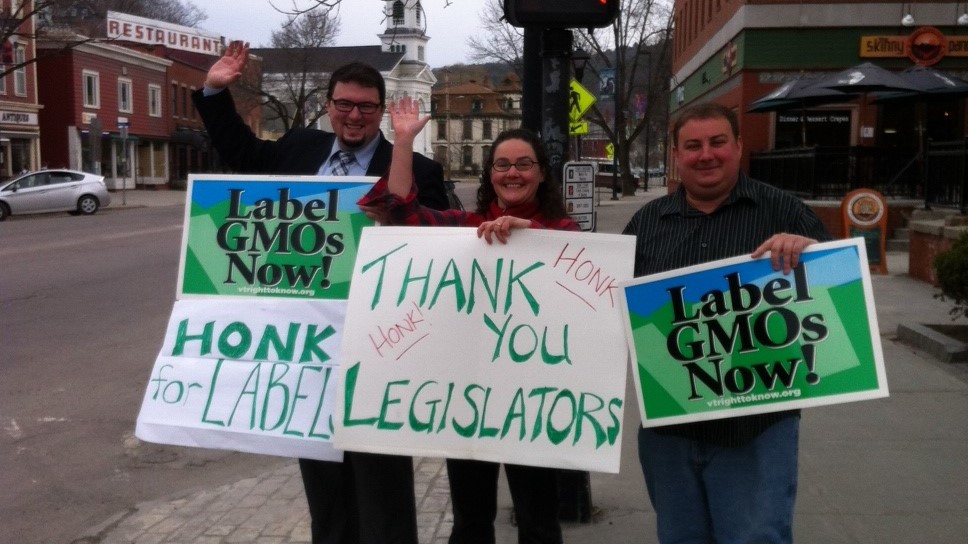
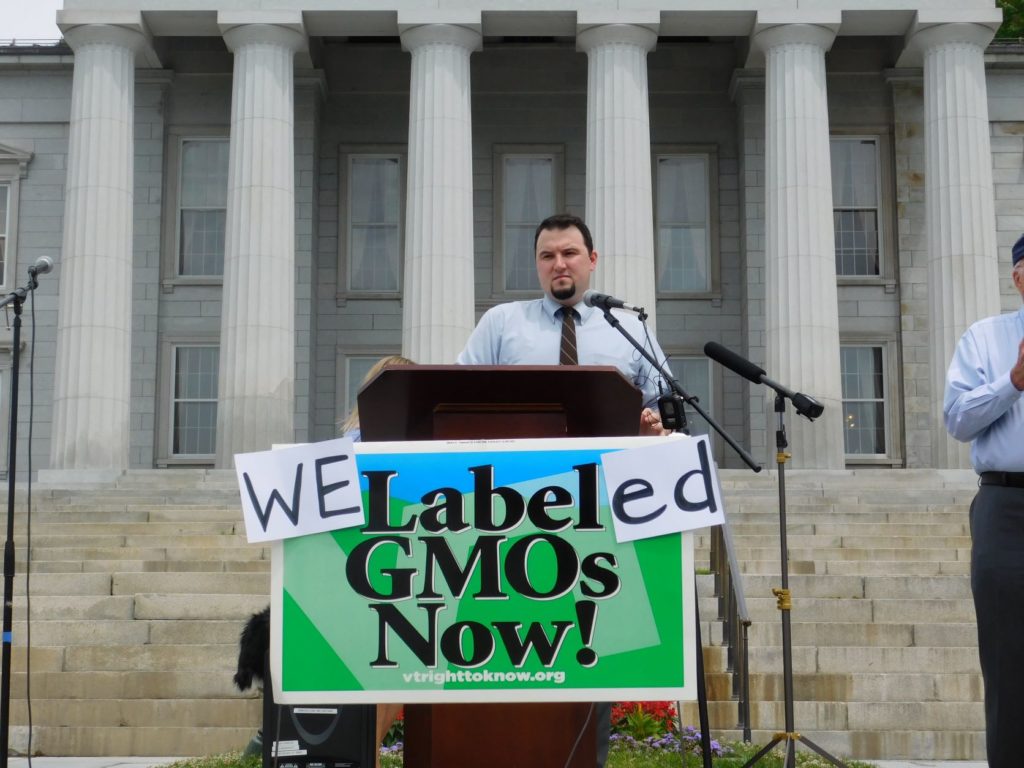
The celebration took place under the shadow of looming federal action aimed at eliminating Vermont’s law and replacing it with a national standard that didn’t require on-package disclosure, included no penalties for failure to label, and excluded a significant portion of genetically engineered products from labeling requirements.
Ultimately, Congress did act to preempt Vermont’s law and institute inferior federal rulemaking, a bitter letdown for myself and so many others who had spent years deeply invested in this important public interest campaign.
Despite this disappointing outcome, I look back on our GMO labeling as an incredible example of what our brave little state can achieve with a well-coordinated campaign backed by strong public support.
Vermont has proven time and again that it can lead the nation and drive meaningful change, and this work continues to this day with initiatives like the Reproductive Liberty Amendment which could make Vermont the first state to explicitly enshrine reproductive freedom in our constitution.
I’ll always be proud of my work on the GMO labeling campaign and deeply grateful for the tens of thousands of VPIRG members and supporters who fought alongside me.
